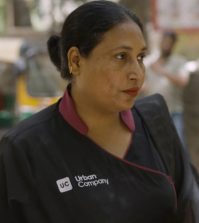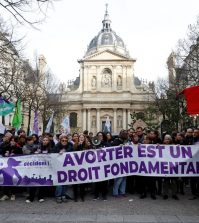- Finding Unshakable Power in a World That Wants to Pull Us ApartPosted 6 months ago
- What could a Donald Trump presidency mean for abortion rights?Posted 6 months ago
- Financial Empowerment: The Game-Changer for Women in Relationships and BeyondPosted 7 months ago
- Mental Health and Wellbeing Tips During and After PregnancyPosted 7 months ago
- Fall Renewal: Step outside your Comfort Zone & Experience Vibrant ChangePosted 7 months ago
- Women Entrepreneurs Need Support SystemsPosted 7 months ago
Poorest women use anti-poverty programmes to boost land ownership-report
Author: Thomson Reuters Foundation from trust.org
Supporting the poorest women by helping them set up small businesses, and giving them livestock and training boosts not only their income but also their prospects of renting or owning land, a study in Bangladesh found on Wednesday.
Only 10 percent of women in an anti-poverty programme put together by Bangladeshi development organisation BRAC owned or rented land at the start of the initiative – seven years later, the figure was almost 40 percent, researchers at the London-based International Growth Centre (IGC) found.
The women’s annual earnings rose by 37 percent four years into the programme, the IGC evaluation of the programme designed by BRAC showed.
Despite progress over the last few decades, about 863 million people, most of them women, still live in extreme poverty, defined as living on less than $1.90 a day.
BRAC’s programme, which benefits 1.6 million households, aims to help the very poorest women to move out of low-paid and insecure work like casual farm or domestic labour.
Experts agree that to eradicate extreme poverty by 2030, one of the new development goals agreed by world leaders this year, more efforts need to be made to reach the poorest.
They are often the hardest to reach and interventions such as microfinance do not help them because they cannot pay back loans as all their income goes into sustenance, studies show.
Participants in the BRAC programme received livestock with a combined value of $140, far more than they could have obtained through informal credit, the IGC said in its study.
They were trained for two years in working with livestock and ways to increase the benefits they derive from their assets.
“When you trust the poor with assets and train them with the necessary skills, they do better and better, year after year,” said Oriana Bandiera, professor of economics at the London School of Economics and one of the authors of the study.
The women’s transition into more stable work resulted in significant improvements in consumption, savings and lower poverty levels, showing the long-term benefits of a programme designed specifically to benefit the poorest people, the study found.
The value of land owned by participants rose by 220 percent, the value of productive assets tripled and participants became more involved in credit markets.
“Through this programme and the results of our ongoing research, we know this approach works to move the ultra-poor into sustainable livelihoods and help them increase their incomes,” said BRAC founder Fazle Hasan Abed.
Started in Bangladesh, the programme has been copied in 20 countries in Africa, South Asia and Latin America.
(Editing by Tim Pearce. Please credit the Thomson Reuters Foundation, the charitable arm of Thomson Reuters, which covers humanitarian news, women’s rights, trafficking, corruption and climate change. Visit www.trust.org to see more stories)






